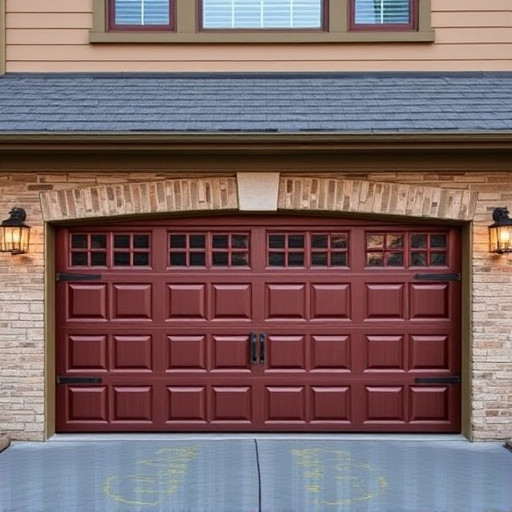Garage door issues range from unusual sounds (squeaking, screeching) caused by worn parts to off-track behavior indicating track or sensor problems. Regular lubrication and part replacement prevent many issues. Power problems may stem from loose connections or sensor debris, resolved through basic troubleshooting. Remote control malfunctions due to weak signals or drained batteries, fixable with battery checks and resets. Safety-critical springs and reversal systems require professional attention for adjustments and maintenance, ensuring smooth operation and preventing accidents. While DIY solutions are possible, complex garage door repairs often necessitate expert technician intervention for safe, effective solutions.
Garage doors are an essential part of modern home automation, yet they often face common problems that can disrupt daily routines. From noisy gates and off-track behavior to power issues and remote control malfunctions, understanding these issues is the first step towards seamless garage door operation. This article provides a comprehensive guide to identifying and solving various garage door problems, offering both DIY troubleshooting tips and insights into when to seek professional garage door repair services.
- Identifying Issues: Noisy Gates and Off-Track Behavior
- Troubleshooting Common Wear and Tear Problems
- Power Issues: When Your Garage Door Won't Open or Close
- Remote Control Malfunctions: Lost Connections and Glitches
- Spring Tension and Safety Reversal Systems: Ensuring Balance and Security
- Professional Help vs DIY: When to Call a Specialist
Identifying Issues: Noisy Gates and Off-Track Behavior
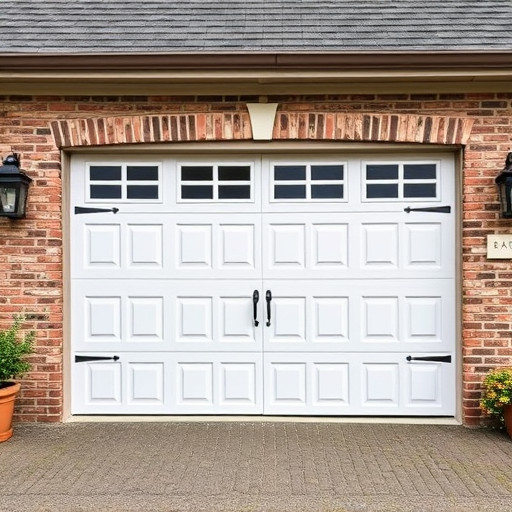
Garage door issues can often be identified through peculiar sounds or behaviors. One of the most common problems is a noisy gate, which may squeak, screech, or rattle during operation. This usually indicates worn-out parts such as loose hinges, damaged rollers, or a missing or broken belt. Regular lubrication and part replacement can resolve these issues.
Additionally, off-track behavior, where the door fails to stay aligned or frequently slips off its tracks, is another red flag. Such problems are often caused by misaligned tracks, worn-out wheels, or damaged sensors. Garage door repair professionals recommend regular inspections to catch these issues early on, ensuring smooth operation and preventing more serious—and costly—damages.
Troubleshooting Common Wear and Tear Problems
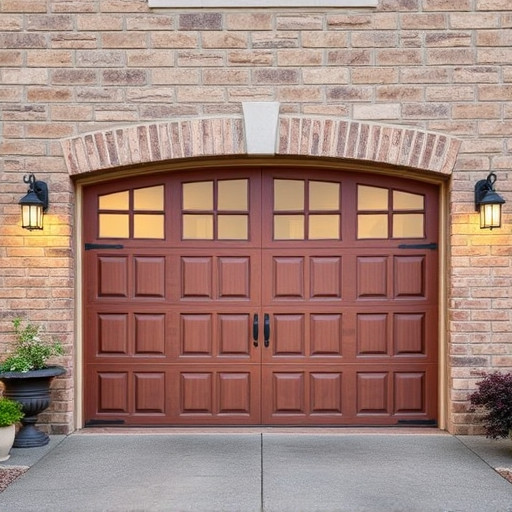
Many garage door issues stem from normal wear and tear, especially in older doors. If your door is showing signs of age, such as squeaking, rubbing, or irregular opening/closing, it’s time to address the problem before it escalates into a safety hazard. Regular maintenance can prevent these issues, but when they arise, DIY troubleshooting may help save you money.
Check for loose or damaged components like springs, cables, and rollers. A simple adjustment or replacement can resolve many wear-related problems. If the door still doesn’t function correctly, consider consulting a professional garage door repair service. They have the tools and expertise to diagnose more complex issues, ensuring your safety and providing long-lasting solutions for smoother operation.
Power Issues: When Your Garage Door Won't Open or Close
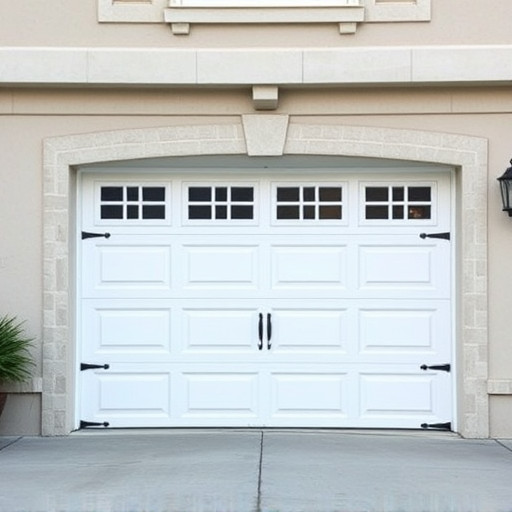
If your garage door is acting up and refusing to open or close, power issues could be the culprit. This is a common problem that can be frustrating for homeowners as it leaves you stranded outside, unable to access your vehicle or securely close your garage. The first step in Garage Door Repair is identifying whether the issue lies with the motor, sensor, or a simple circuit malfunction.
Fortunately, there are quick and easy troubleshooting steps you can take. Check for any loose connections at the power source and ensure the electrical supply is functional. Sometimes, a simple reset of the circuit breaker or fuse can resolve the problem. If sensors are involved, ensure they are aligned correctly and free from debris, as even a small obstruction can prevent the door from closing properly. Regular maintenance, including lubricating hinges and tracks, can also prevent power-related problems in the long term.
Remote Control Malfunctions: Lost Connections and Glitches
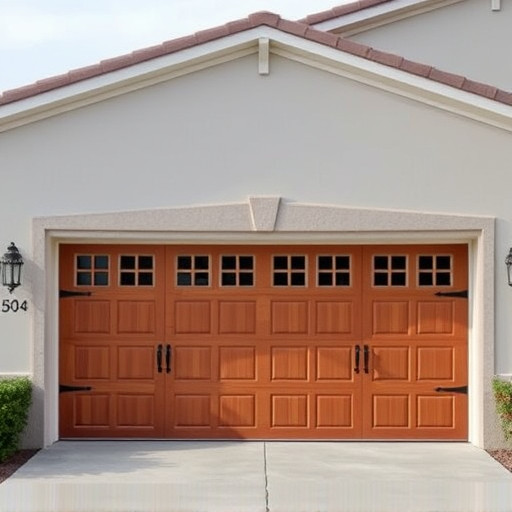
Garage door remote control malfunctions can be frustrating, but there are simple solutions for common issues like lost connections or glitches. Often, these problems arise due to weak signals or interference from other electronic devices. To restore functionality, try moving your vehicle closer to the garage door opener and ensuring no obstructions like walls or large appliances are blocking the signal path.
If physical proximity doesn’t help, check the battery in your remote control. A drained battery can cause intermittent performance. Replacing it with a new one usually resolves the issue. Additionally, try resetting the garage door opener by unplugging it from the power source for a few minutes and then plugging it back in. This hard reset can clear temporary glitches, offering a temporary fix until professional Garage Door Repair services can be arranged if needed.
Spring Tension and Safety Reversal Systems: Ensuring Balance and Security
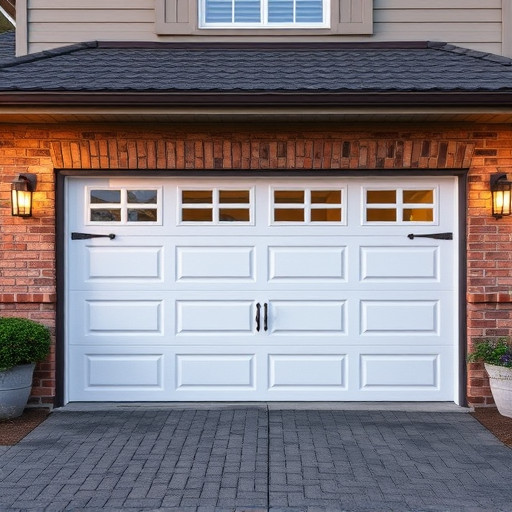
Garage door springs are responsible for opening and closing your garage door, making them a crucial component in garage door repair. Over time, these springs can lose tension, causing the door to open and close unevenly or not at all. To maintain balance and ensure smooth operation, regular adjustments to spring tension may be necessary. It’s important to consult with a professional if you’re unsure about how to make these adjustments to avoid injury from a potentially powerful mechanism.
Safety reversal systems are another vital aspect of garage door functionality. These mechanisms act as a failsafe, stopping the door mid-open or close if it detects an obstruction. Regularly inspect and maintain these safety features to prevent accidents and ensure your garage door operates securely. A well-maintained garage door not only functions better but also provides greater peace of mind for homeowners.
Professional Help vs DIY: When to Call a Specialist
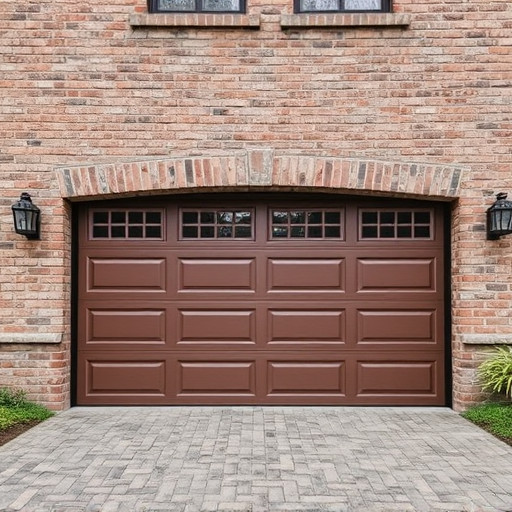
When it comes to garage door issues, many homeowners opt for do-it-yourself (DIY) solutions to save costs. While some minor repairs can be tackled this way, more complex problems often require professional expertise. Garage door repair is a specialized field, and seeking specialist help ensures the job is done safely and effectively.
A professional technician has the tools, training, and knowledge to diagnose even obscure issues and offer tailored solutions. They can handle everything from spring replacements and motor repairs to advanced diagnostic checks. Calling a pro is especially crucial for safety reasons; faulty garage doors can cause injuries or property damage if not handled by a qualified individual.
Whether you’re dealing with a noisy gate, power issues, or remote control glitches, understanding common garage door problems and their solutions is key to efficient garage door repair. By troubleshooting wear and tear, checking spring tension, and familiarizing yourself with safety systems, you can maintain your garage door’s balance and security. Remember, while some issues may be tackled DIY-style, others necessitate professional help for safe and effective resolution. Equip yourself with knowledge and take control of your garage door’s health to avoid more complex—and costly—repairs down the line.
